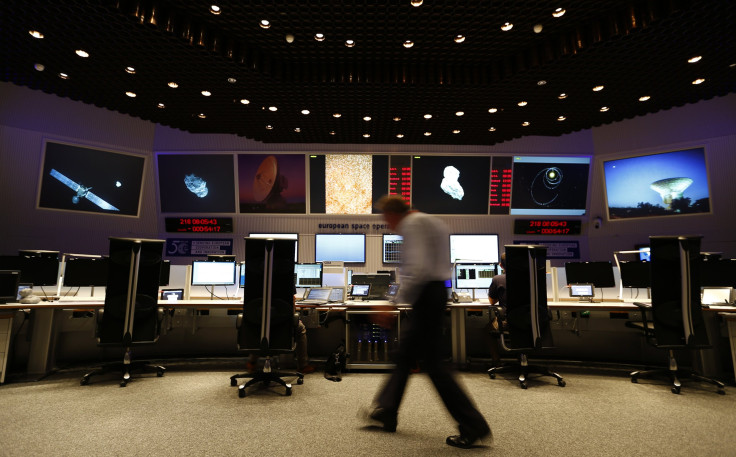Comet Landing 2015: Rosetta Probe Philae Finds 67P/Churyumov-Gerasimenko Comet Not Magnetized

Officials for Europe's first-of-its-kind, comet-chasing mission Rosetta announced Tuesday that the project's subject comet has no magnetic field. The news surrounding the comet, 67P/Churyumov-Gerasimenko, could provide some key insight into the formation of bodies -- such as comets and planets -- in the early development stages.
Rosetta's probe, called Philae, took data from its multiple landings last November and found that the surface is not magnetized, said a report by the European Space Agency, first published by the journal Science and presented at the European Geosciences Union in Vienna. "If the surface was magnetized, we would have expected to see a clear increase in the magnetic field readings as we got closer and closer to the surface," said Hans-Ulrich Alster, lead author of the results. "But this was not the case at any of the locations we visited, so we conclude that Comet 67P/Churyumov-Gerasimenko is a remarkably nonmagnetic object."
The probe's landing was not smooth, taking four tries, even experiencing a grazing collision along the way. The complexity of the landing might have helped the team discover that the comet did not have a magnetized core. The multiple ascents and descents allowed the team to compare measurements to and from the different points of contact along the comet's surface.
The Philae probe, which is the size of a washing machine and weighs about 220 pounds, had enough stored battery life for 60 hours of experiments and sent the results home Nov. 15. The finding could help clarify how bodies such as comets and planets are formed in the early stages since it might help rule out magnetic forces.
“It’s a massively important finding and a key thing we wanted to measure," said Matthew Taylor, the European Space Agency’s project scientist for Rosetta, Nature reported. "That Churyumov-Gerasimenko does not have a magnetic field could help us solve the puzzle of how planetary building blocks evolved from the proto-planetary disk. It appears we will have to switch off the effect of magnetism in simulations of the beginning."
Philae is currently in hibernation mode to preserve battery, but could reboot by the end of May. That means communication could be established by perhaps the end of June, with the battery starting to charge again in July.
© Copyright IBTimes 2024. All rights reserved.






















